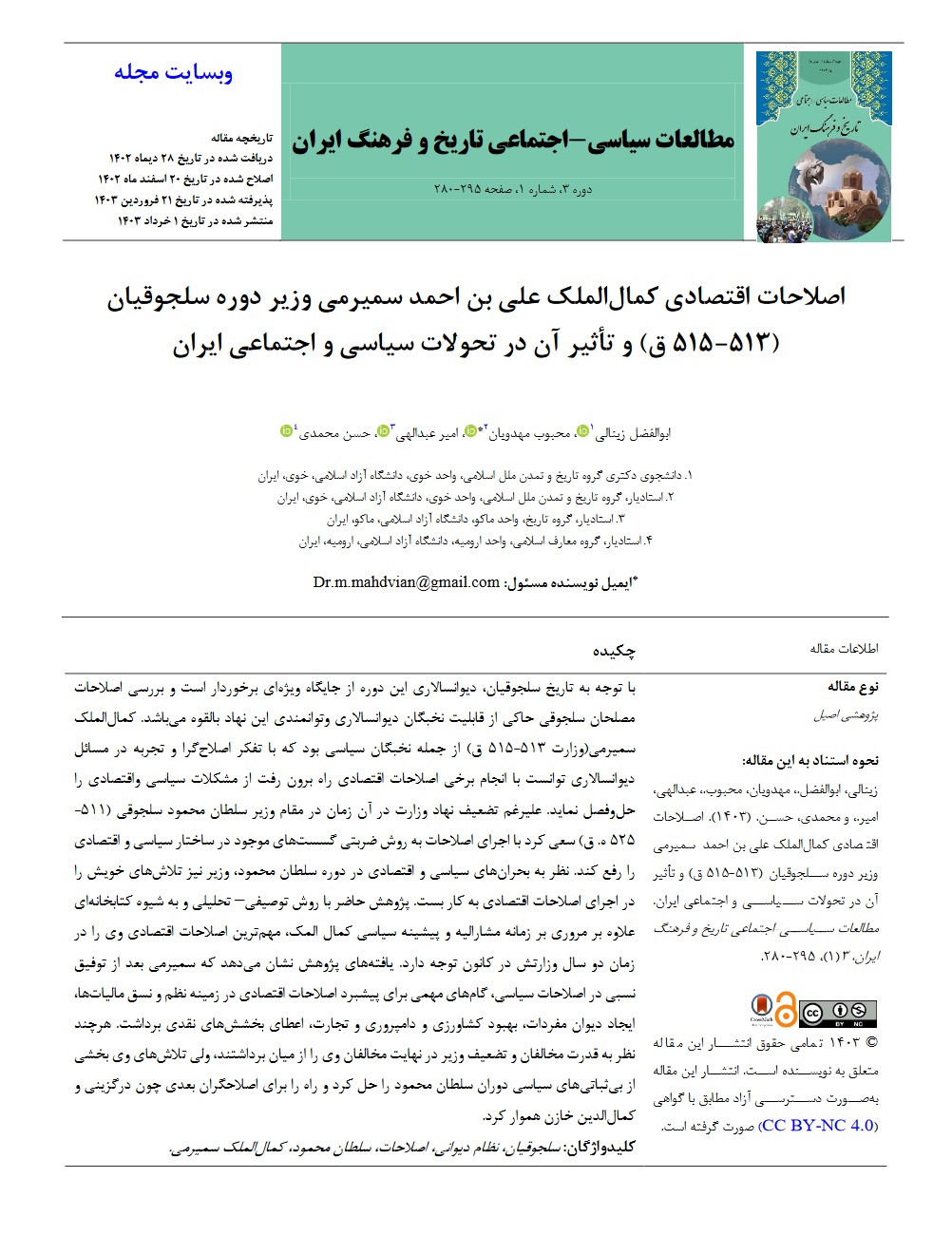Economic Reforms of Kamal al-Mulk Ali ibn Ahmad Samirami, Minister During the Seljuk Period (1119-1121 CE), and Their Impact on the Political and Social Transformations in Iran
Keywords:
Seljuks, Bureaucratic System, Reforms, Sultan Mahmud, Kamal al-Mulk SamiramiAbstract
Considering the history of the Seljuks, the bureaucracy of this period holds a special status, and an examination of the reforms by Seljuk reformers reveals the capabilities of bureaucratic elites and the potential strength of this institution. Kamal al-Mulk Samirami (Ministry: 1119-1121 CE) was among these political elites, who, with his reformist mindset and experience in bureaucratic matters, managed to resolve the political and economic challenges through the implementation of certain economic reforms. Despite the weakening of the ministry at that time, as the minister of Sultan Mahmud Seljuk (1117-1131 CE), he endeavored to address the existing political and economic disconnections through swift reforms. Given the political and economic crises during Sultan Mahmud’s reign, the minister also employed his efforts in implementing economic reforms. This research, using a descriptive-analytical method and a library-based approach, focuses on reviewing Kamal al-Mulk's era, his political background, and his most significant economic reforms during his two-year ministry. The findings of the study indicate that after achieving relative success in political reforms, Samirami took important steps to advance economic reforms in areas such as the regulation of taxes, the establishment of the Diwan al-Mufradat (Office of Singularities), the improvement of agriculture and animal husbandry, and the promotion of trade, as well as the distribution of monetary grants. Although, due to the power of his opponents and the eventual weakening of the minister, his adversaries ultimately removed him, his efforts resolved some of the political instability of Sultan Mahmud's era and paved the way for subsequent reformers such as Darghazini and Kamal al-Din Khazin.
Downloads







